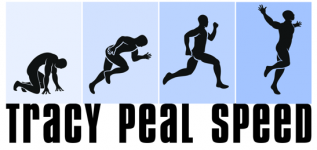STOP RUNNING STUIPID
If you don’t know Adam Robinson, you should. By all accounts, Robinson is a modern-day polymath: robustly opinionated and ubiquitously coveted for his expertise. His palmares include being an American Chess Master, obtaining a law degree from Oxford University, co-authoring the New York Times best-seller Cracking the SAT, co-founding The Princeton Review, and applying his advisory elbow grease to problems facing the heads of some of the world’s largest hedge funds. You could argue that Robinson is a prodigy, someone having that rare intelligence that includes both mathematical and conceptual genius.
Robinson is self-described as “systems builder, wizard, shaman of global markets, manifester, do-gooder, alchemist, and embracer of possibility” (Wiser Conversations). His notoriety skyrocketed as a featured guest on several of Tim Ferris’s pods. When listening to Robinson speak, I’m struck by the athleticism of his brain – so nimble and quick-witted. He thinks for a living, immersing himself in projects of imaginative discovery, always expecting “magic and miracles.” He lives in the world of ideas, having recently delved into the concept of stupidity. As he discovered, “stupidity is not the opposite of intelligence, but the cost of intelligence overwhelmed by a complex environment.” He spent many months frolicking around with the idea, in preparation for a presentation that has evolved into the book How Not To Be Stupid (so engaging was the information that Warren Buffett, his friend and mentor, endorsed the project remarking that “you got to get this information out into the world”).
Essentially, Robinson identified seven mitigating factors that define stupidity. By studying everyone from Olympic athletes to con-men, and everything from political blunders to hoaxes, he was able to pinpoint what “induces stupidity .” And although Robinson cautions that all seven elements (below) don’t have to be present, there is a definite and undeniable cause-and-effect relationship that compounds between them.
1. Being outside your normal environment
2. Information overload
3. Requiring intense focus
4. The presence of a large group of like-minded people
5. Being in the company of authority
6. Having physical or emotional compromise/stress
7. Sense of urgency or rushing
Looking at these factors (further discussed by Robinson on the RP Daily webcast), you may wonder how they relate to your running? Most runners, and running-predominate athletes are, paradoxically, a step away from malady. Yale Medicine reports that “at least 50 percent of regular runners get hurt each year”, so if you aren’t injured this year, there is a good chance you will be injured the next. Some studies put that number as high as 85% for every 1000 hours of running (IJSPT, 2012). In my probing to unpack the mechanism of injury, Robinson has led me to the belief that running, as a sport or activity, puts runners in the Stupid Zone. That by definition, runners are “overlooking or dismissing conspicuously critical information” invaluable to the execution of gait motion. Running, for most, is an “invitation to be stupid.” Why runners are tumbling into the inevitable abyss of pain is way more important that how.
Running isn’t bad. And being “stupid” during running isn’t a denunciation. “Last year, the current estimate is between 210,000-440,00 deaths from hospital error. That’s in a
good year, that’s in a normal year, because of the antecedents of stupidity”, reveals Robinson. Stupidity happens. Robinson has burrowed and discovered rich nuggets for examination and exploration. He’s offering us the “appropriate warnings,” to which human beings, unfortunately, tend to ignore. The challenge is more about what to do when you find yourself in the Stupid Zone, and how to successfully navigate it to your advantage. Knowing that every run has the potential for stupidity, gives you the power to sidestep pitfalls and control your daily performance outcomes.
In Part 2, we will further examine how Robinson’s precepts can be utilized to augment your running and keep you stupid-free.
Wiser Conversations / Ep 16: How Not To Be Stupid with Adam Robinson https://open.spotify.com/episode/13pyDfHeOUJ0Qn3kq18UrQ?si=vEa6S_1PTtK9msyQM_eHEw&nd=1
The Tim Ferris Show / Ep 219: Lessons from Warren Buffett, Bobby Fischer, and other Outliers
https://podcasts.apple.com/us/podcast/the-tim-ferriss-show/id863897795?i=1000380737827
The Tim Ferris Show / Ep 254: When To Quit: Lessons from World-Class Entrepreneurs, Investors, Authors, and more
https://podcasts.apple.com/us/podcast/the-tim-ferriss-show/id863897795?i=1000390208177
The Tim Ferris Show / Ep 322: Adam Robinson – Outsmarting and Outflanking the Competition
https://podcasts.apple.com/us/podcast/the-tim-ferriss-show/id863897795?i=1000414316531
The Nantucket Project / rp daily: What Is Stupid?
Yale Medicine / Running Injuries
https://www.yalemedicine.org/conditions/running-injury
International Journal of Sports Physical Therapy / Training Errors and Running Related Injuries: A Systemic Review
https://www.ncbi.nlm.nih.gov/pmc/articles/PMC3290924
About PEAL: Tracy Steven Peal, Sr. is a Skill and Movement Specialist who specializes in biomechanical analysis and teaching proper form. His emphasis is improving Running Gait, and has worked many elite, pro, D1 and aspiring athletes. Triathlon, Track & Field, and Strength & Conditioning Coach. He has been engaged in the field of movement study for more than 20 years, as a Triathlon, Track & Field, and Strength & Conditioning expert. Tracy works directly with athletes, assisting clients with their recovery from a variety of sports-related injuries. Tracy is currently scheduling individual sessions to help show athletes how to avoid injury, recover quickly, and handle the stresses of training and competition.
To schedule an appointment you can reach Tracy at tracy@pealsportsperformance.com or (302) 753-0220








